#Syrian democratic council
Note
The thing that honestly put me off of anarchists is they seem to think everyone is equally qualified to do anything. Accessibility ramps built by hobbyists, building codes set by Minecraft girlies, etc. And when this inevitably blows up in someone’s face and hurts someone? How do you hold anyone accountable in an anarchist society? How do you have OSHA in one?
My head is killing me today, so apologies if any of this is worded poorly.
I can see where you'd get this idea, and where you're coming from, but I can assure you that these things are very much accounted for. A good example of this is in the Autonmous Administration of North and East Syria, where I can speak first hand that professionall schooled and trained engineers arein charge of rebuilding infrastructure. There is also equally trained and qualified people in most other risky-professional roles, like medicine and such.
There absolutely are anarchists that either go "idk lol" or say that nothing is needed. I hate doign this, because it makes me look like one too, but I would just recommend to ignore a lot fo these types, because they usually end up just liking Aanrchism as a "vibes" thing rather than as a mode of structure and organising.
It's hard to give many examples of it all in action, since most anarchist communtiies are small (which is part of the point) but that's also why AANES is a great example for a lot of this in action/
If any of this didn't answer your question, let me know and I'd be happy to rephrase or answer it better. I'm shite at words, haha.
#Anarchism#Autonomous Administration of North and East Syria#AANES#Rojava#NE Syria#Syrian Democratic Council#Democratic confederalism#Apoism#crynwrdrwg#ask#butter-and-too-much-bread
34 notes
·
View notes
Text
Just leaving this here.
Feel free to reblog.
Fuck Erdogan and his cronies for this shit!
Feel free to reblog.
#dougie rambles#political crap#middle east#syria#syrian civil war#north and east Syria#rojava#turkey#assyria#bethnahrin#kurdistan#levant#fuck Erdogan#terrorism#war crimes#sdf#Syrian democratic forces#Syrian democratic council#leftism#anti imperialism#anti fascism#afrin
25 notes
·
View notes
Text
Update post:
The US has publicly stated that it has not found Israel to be violating International Humanitarian Law (IHL), in terms of how it uses its weapons, and not blocking humanitarian aid.

Yet for some reason, that doesn't seem to matter when it comes to how the US is currently treating Israel. At the UN Security Council, for the first time since the start of the war, the US has not used its veto to block a resolution that's anti-Israel. This resolution calls for an immedaite ceasefire in Gaza for the rest of Ramadan (half of this month has passed already), and while it does call for an immediate release for the Israeli hostages, it does NOT make that a CONDITION for the ceasefire. The operation in Rafah, since it hasn't happened yet, is not likely to happen during Ramadan, so the main thing this resolution is calling to stop, is the on going lower intensity fighting in places like the Shifa hospital, where at least 500 confirmed Hamas and PIJ terrorists have been arrested by Israel. In essence, this is a pro-terrorist reolution. The US did abstain, showing it knows this resolution is wrong. It's also meaningful that just a few days earlier, a similar resolution submitted by the US itself, which did make the release of the hostages a condition for the ceasefire, was vetoed by those great beacons of democracy, Russia and China.

Did I mention Hamas praised the passing of this anti-Israel UN resolution? I can't stress this enough, but if a genocidal, antisemitic, Islamist tererorist organization is glad this resolution passed, that should be upsetting to EVERY person who values life out there.
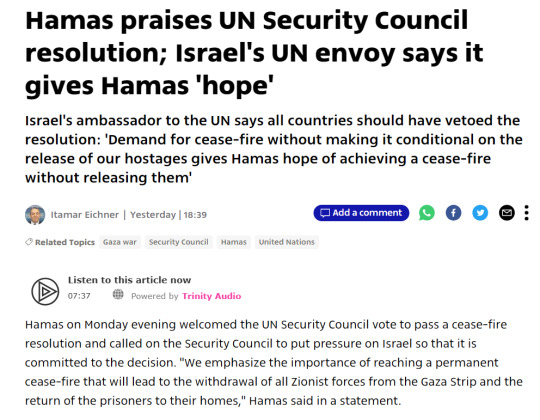
Right after praising the resolution, Hamas also rejected the hostage deal compromise suggested by the US, that Israel had agreed to, which would have seen 40 Israeli hostages freed, in exchange for about 800 convicted Palestinian terrorists let go. Hamas might have said no anyway, but we'll never know for sure what their answer would have been, had this resolution not been passed.
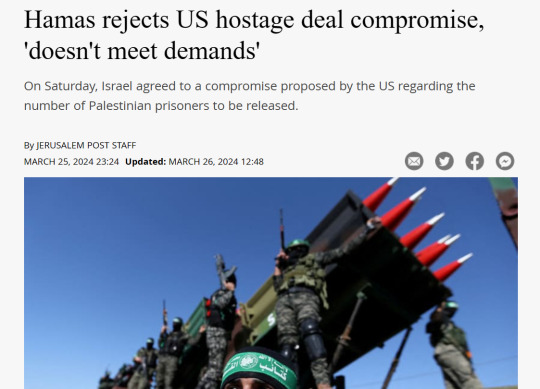
Maybe the most troubling part is that the US insists this UNSC resolution is non-binding, meaning it will have no real effect on Israel's ability to continue fighting during Ramadan. That means, the US abstaining from using its veto wasn't done for the sake of a real chance to help Palestinians. It was a symbolic anti-Israel step, a bone thrown to Israel haters. That's how Israelis understand it, that's how every political player in the international arena (including the overjoyed Hamas) understands it, that's how political analysts understand it, and it should be troubling to everyone, that the US can treat a democratic, self defending, IHL abiding ally this way.

In fact, at least one country is already using this resolution to put pressure on Israel. The President of Colombia has said that unless Israel complies with the resolution and accepts an immediate ceasefire, his country will cut off its diplomatic ties with it.
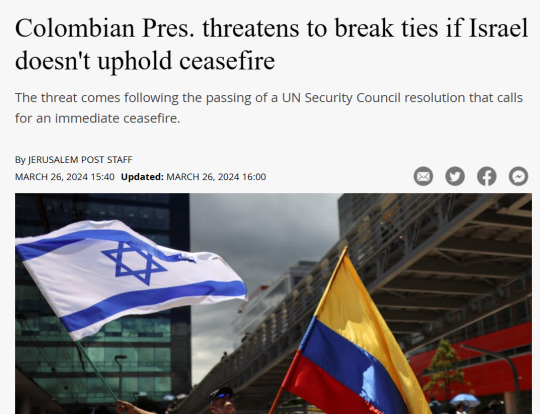
Just one more thing. This is resolution did not include a condemnation of Hamas and the massacre it perpetrated on Oct 7, and yet the US allowed it to pass. The other day, the UNSC immediately condemned the ISIS terrorist attack in Moscow, which left 137 Russians murdered. Nobody suggested that "context" should be brought into it, like that Russia has itself attacked Ukraine (which Putin has implied is behind the attack), or like that ISIS' animosity originates in Russia's protection of the Syrian regime of Bashar Assad, which caused the deaths of hundreds of thousands, including many ISIS terrorists. In sharp contrast to this, almost 6 months into this war, the UNSC has not yet adopted a single resolution condemning the Hamas massacre in which over 1,200 people in Israel were butchered, many raped, and over 250 were kidnapped and are still held captive in Gaza. This discrimination was called out by Israeli ambassador to the UN, Gilad Erdan. He pointed to another example of such discrimination, by reading the resolution that was passed in 2014, when Boko Haram (another Islamist terrorist group) kidnapped Nigerian girls.

This is 65 years old Rami Shani.
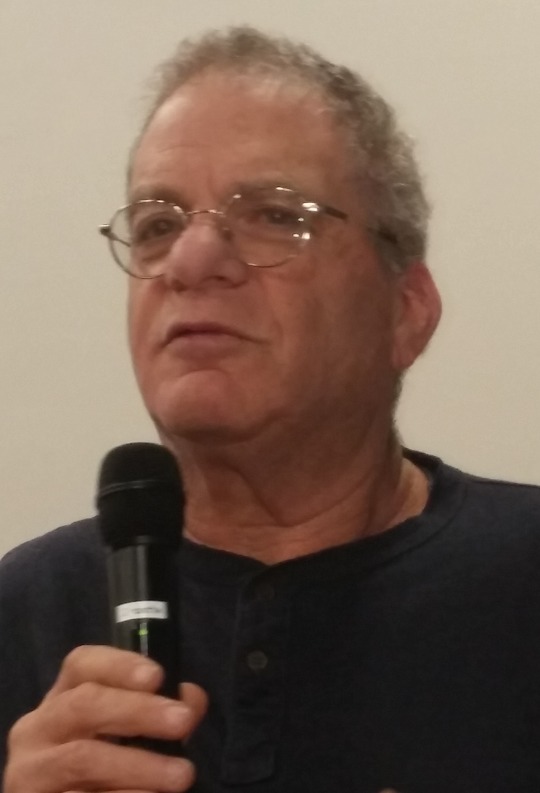
He's a journalist, working for an Israeli radio station. On Oct 7, he happened to be covering a bicycle event taking place in Israel's south, which is why he was already awake and there at 5:30 in the morning. At 6:30, the Hamas attack started. As Rami started getting information about the massacre at the Nova music festival, he abandoned his original task, and started driving in there and getting people out in his car. He said everyone he managed to get out of there was wounded, having been shot in their arms or legs, one woman was shot in the stomach. One of the people he saved was an Israeli Bedouin Muslim Arab, who worked at the party, and was crying as he had been shot in both his arms and legs. In one case, he managed to evacuate 8 young people from the scene while seeing a terrorist squad progressing in his direction. He kept going, until security forces wouldn't allow him to go back in. He saved a total of about 40 people, and has been visiting them in hospitals around the country since then. Whenever you hear anyone arguing that journalists at the scene of a disaster can just keep covering the news, without doing anything to aid the victims, please remember Rami.
(for all of my updates and ask replies regarding Israel, click here)
#israel#antisemitism#israeli#israel news#israel under attack#israel under fire#terrorism#anti terrorism#hamas#antisemitic#antisemites#jews#jew#judaism#jumblr#frumblr#jewish#israelunderattack#un
187 notes
·
View notes
Text

A U.K. Museum Claims Roman Emperor Elagabalus Was Transgender
The North Hertfordshire Museum will refer to the 3rd-century ruler using she/her pronouns.
Third century C.E. Roman Emperor Elagabalus was transgender, says the North Hertfordshire Museum in the U.K., which will be referring to the ruler with she/her pronouns.
The change is in keeping with museum policy that states that pronouns used in its displays will be those “the individual in question might have used themselves” or whatever pronoun is “in retrospect, appropriate,” according to a report in the Telegraph.
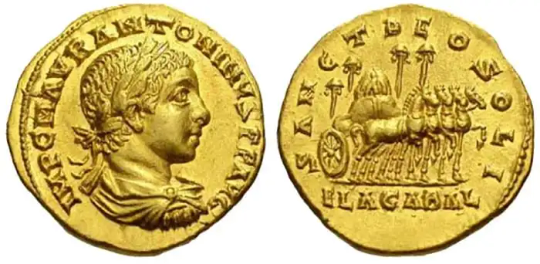

The museum owns a coin minted in the reign of Elagabalus, who ruled Rome from 218 to 222 C.E., when the emperor was assassinated at age 18. It has been used in LGBTQ-themed displays. According to the museum, it consults with Stonewall, an LGBTQ+ charity, and trade union Unison’s LGBT wing for best display practices.
“Elagabalus most definitely preferred the she pronoun, and as such this is something we reflect when discussing her in contemporary times,” Keith Hoskins, Liberal Democrat councillor and executive member for arts at the Liberal Democrat and Labour coalition-run North Herts Council, told the Telegraph.
“We try to be sensitive to identifying pronouns for people in the past, as we are for people in the present,” he said. “It is only polite and respectful. We know that Elagabalus identified as a woman and was explicit about which pronouns to use, which shows that pronouns are not a new thing.”


Cassius Dio, who chronicled the history of Rome, wrote that Elagabalus was “termed wife, mistress, and queen,” telling one lover, “Call me not Lord, for I am a Lady.” Elagabalus even reportedly asked to have female genitalia fashioned for her.
There is some disagreement among historians about the meaning of the classical texts in which Elagabalus asks to be called “lady,” however, according to the Telegraph, with some deeming it an attempt at character assassination. Dio served the reign of emperor Severus Alexander, who succeeded Elagabalus, and used such behavior as justification for the assassination.
“The Romans didn’t have our idea of ‘trans’ as a category,” Andrew Wallace-Hadrill, a Cambridge classics professor, told the Telegraph, adding that “they used accusations of sexual behavior ‘as a woman’ as one of the worst insults against men.” Wallace-Hadrill also indicates that racism may have played a part, since Elagabalus was Syrian and not Roman.

Marcus Aurelius Antoninus (c. 204 – 11/12 March 222), better known by his nicknames Elagabalus and Heliogabalus, was Roman emperor from 218 to 222, while he was still a teenager. His short reign was notorious for sex scandals and religious controversy. A close relative to the Severan dynasty, he came from a prominent Arab family in Emesa (Homs), Syria, where since his early youth he served as head priest of the sun god Elagabal. After the death of his cousin, the emperor Caracalla, Elagabalus was raised to the principate at 14 years of age in an army revolt instigated by his grandmother Julia Maesa against Caracalla's short-lived successor, Macrinus. He only posthumously became known by the Latinised name of his god.
Later historians suggest Elagabalus showed a disregard for Roman religious traditions and sexual taboos. He replaced the traditional head of the Roman pantheon, Jupiter, with the deity Elagabal, of whom he had been high priest. He forced leading members of Rome's government to participate in religious rites celebrating this deity, presiding over them in person. He married four women, including a Vestal Virgin, in addition to lavishing favours on male courtiers thought to have been his lovers. He was also reported to have prostituted himself. His behavior estranged the Praetorian Guard, the Senate and the common people alike. Amidst growing opposition, at just 18 years of age he was assassinated and replaced by his cousin Severus Alexander in March 222. The assassination plot against Elagabalus was devised by Julia Maesa and carried out by disaffected members of the Praetorian Guard.
Elagabalus developed a reputation among his contemporaries for extreme eccentricity, decadence, zealotry and sexual promiscuity. This tradition has persisted; among writers of the early modern age he endured one of the worst reputations among Roman emperors. Edward Gibbon, notably, wrote that Elagabalus "abandoned himself to the grossest pleasures with ungoverned fury". According to Barthold Georg Niebuhr, "the name Elagabalus is branded in history above all others" because of his "unspeakably disgusting life". An example of a modern historian's assessment is Adrian Goldsworthy's: "Elagabalus was not a tyrant, but he was an incompetent, probably the least able emperor Rome had ever had." Despite near-universal condemnation of his reign, some scholars write warmly about his religious innovations, including the 6th-century Byzantine chronicler John Malalas, as well as Warwick Ball, a modern historian who described him as "a tragic enigma lost behind centuries of prejudice".
#Roman Emperor Elagabalus#A U.K. Museum Claims Roman Emperor Elagabalus Was Transgender#ancient artifacts#archeology#archeolgst#history#history news#ancient history#ancient culture#ancient civilizations#ancient rome#roman history#roman empire#roman emperor#long reads#long post
45 notes
·
View notes
Text
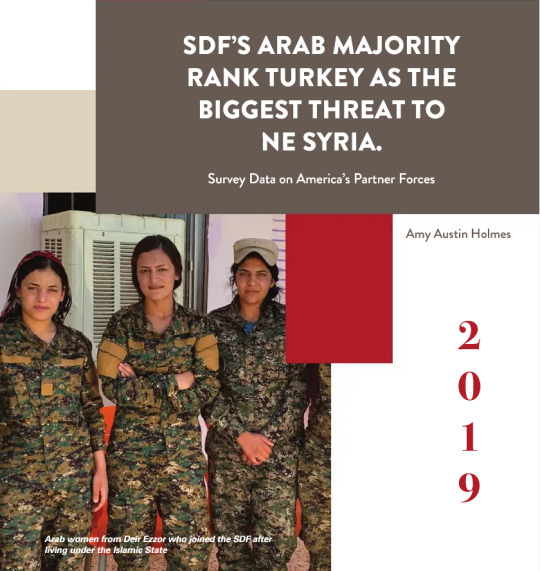
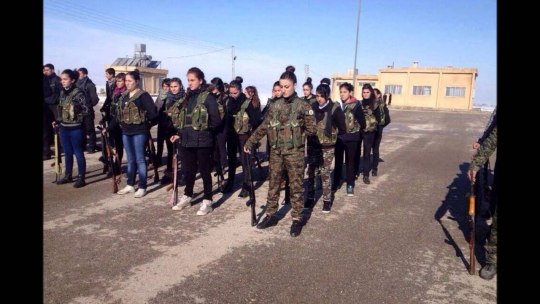
Kakistocracy #CorpMedia #Idiocracy #Oligarchs #MegaBanks vs #Union #Occupy #NoDAPL #BLM #SDF #DACA #MeToo #Humanity #DemExit #FeelTheBern
JinJiyanAzadi #BijiRojava SDF’S ARAB MAJORITY RANK TURKEY AS THE BIGGEST THREAT TO NE SYRIA. [UPDATES]
Of all the actors in the Syrian conflict, the Syrian Democratic Forces (SDF) are perhaps the most misunderstood party. Five years after the United States decided to partner with the SDF, gaping holes remain in our knowledge about the women and men who defeated the Islamic State (IS)…
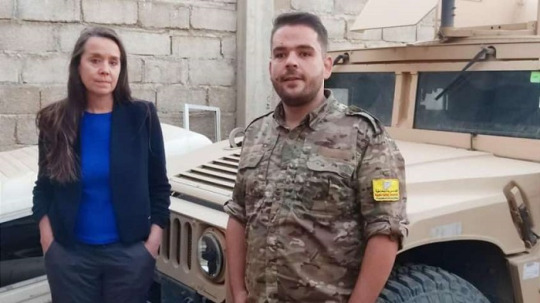
RELATED UPDATE: US researcher Amy Austin Holmes visits North and East Syria: “It requires international pressure to prevent Turkey from continuing its crimes”
https://syriacpress.com/blog/2021/10/08/us-researcher-amy-austin-holmes-visits-north-and-east-syria-it-requires-international-pressure-to-prevent-turkey-from-continuing-its-crimes/
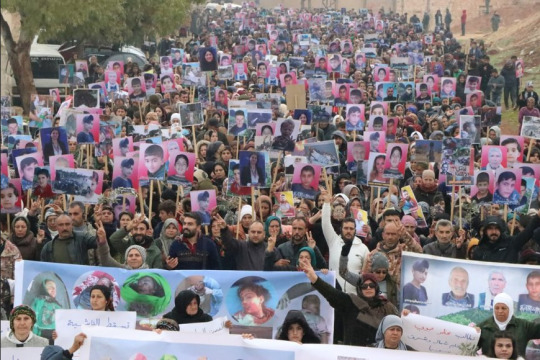
RELATED UPDATE: “We will defeat the Turkish occupation with our will”
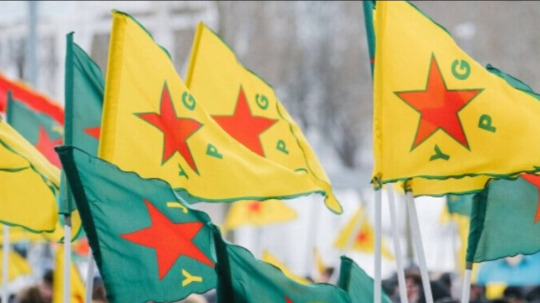
RELATED UPDATE: YPG: The Kobanê resistance makes us more determined to defend the Rojava revolution

RELATED UPDATE: With All Eyes on Palestine, Don’t Forget Rojava

RELATED UPDATE: Iranian journalist jailed for investigating death of Kurdish teen
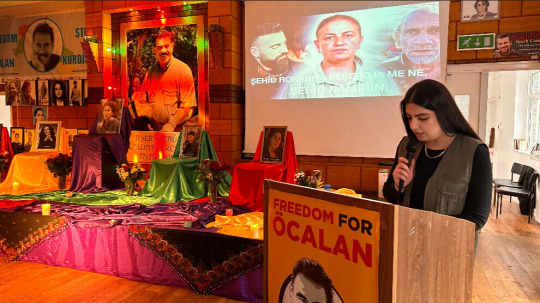
RELATED UPDATE: Protests across Europe denounce the Paris massacre

RELATED UPDATE: Iranian authorities stop Jina Amini's lawyer, seize EU Parliament Sakharov Prize
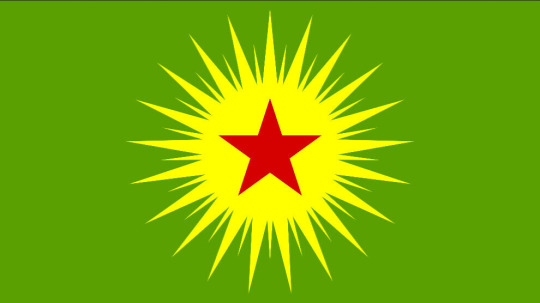
RELATED UPDATE: KCK: The guerrilla proved its superiority over the occupying Turkish army
FURTHER READING:
#Kakistocracy#CorpMedia#Idiocracy#Oligarchs#MegaBanks vs#Union#Occupy#NoDAPL#BLM#SDF#DACA#MeToo#Humanity#DemExit#FeelTheBern#JinJiyanAzadi#BijiRojava
13 notes
·
View notes
Text
In the fall of 2012, I took part in an open discussion at the U.S. Embassy in Moscow on Russia’s role in the Middle East. In her presentation, an experienced American diplomat focused on how Russia was a spent force that would never be able to recapture the Soviet Union’s prominence in the region. With few dissenting voices, the discussion was remarkable for how off-base it was: It was exactly then that Moscow was starting to reemerge as a major player in Syria and across the entire region.
Today, Russia’s influence in the Middle East is at another inflection point. Hobbled by its disastrous invasion of Ukraine, Russia’s declining relevance in the region has been thrown into sharp relief by Hamas’s Oct. 7 attack on Israel. Whereas Moscow was central to the diplomacy surrounding the civil war in Syria 10 years ago, Russia’s push in the U.N. Security Council for a cease-fire in Gaza gained little traction. The contrast is emblematic for the end of Moscow’s decade-long comeback in the region.
Even before regaining the Russian presidency in May 2012, Vladimir Putin was determined to return Russia to a prominent role in the Middle East, which he likely believed was necessary for Russia to be a great power. Criticizing then-President Dmitry Medvedev’s decision to abstain on the U.N. Security Council resolution authorizing the use of force in Libya, which Putin likened to the medieval crusades, he appeared bent on preventing the West from ever having a free hand again. And as the Syrian civil war broke out in 2011 and intensified in 2012, the Kremlin took a hard line opposing any U.N. action, fearing a replay of events in Libya.
It was amid the Syrian war that Moscow charted its course to renewed significance in the Middle East. Putin made his first major move there in September 2013. With the United States preparing for an armed intervention after the Syrian regime crossed the “red line” publicly announced by then-President Barack Obama and used chemical weapons on its own people, Putin devised a diplomatic compromise, whereby Russia promised to help eliminate Syria’s chemical weapons arsenal.
Two years later, Russia cemented its renewed position in the region by militarily intervening in Syria. In less than a year, Moscow’s forces turned the tide of the war and secured Syrian dictator Bashar al-Assad’s rule—a success Putin would parlay into influence across the region. With its firm hold in Syria, Russia became central to regional diplomacy from Ankara to Riyadh to Cairo. Working with Iran and Hezbollah on the battlefield in Syria, Moscow’s relations with Tehran began to warm. Forced to take account of Russian military forces next door—especially the Russian air defense units that could potentially ground the Israeli air force—Israel increasingly engaged Moscow. Iraq and Egypt sought Russian intelligence and counterterrorism cooperation. Soon, Russia-backed forces began to arrive in Libya to intervene in that civil war as well.
Moscow used its new entree in the region to posture itself as an alternative to the United States, leveraging discontent with Washington to boost its influence. In Turkey, Moscow capitalized on perceptions of Western support for the failed coup against President Recep Tayyip Erdogan in 2016 as well as persistent clashes over U.S. cooperation with Kurdish forces in Syria that Ankara considers terrorist groups. In Egypt, Putin used the Obama administration’s concerns after the overthrow of the democratically elected Muslim Brotherhood-led government by the Egyptian military in 2013 to develop warm relations with new Egyptian President Abdel Fattah al-Sisi. In Israel, Putin took advantage of the icy relationship between Obama and Israeli Prime Minister Benjamin Netanyahu to further boost ties with Israel. In Saudi Arabia, Putin made an early bet on the ambitious crown prince, Mohammed bin Salman, demonstratively shaking his hand at the G-20 summit in 2018, just a month after journalist Jamal Khashoggi was murdered by Saudi government operatives.
Moscow’s interest-based approach and skillful diplomacy helped it successfully navigate regional cleavages. Russian policy has been pragmatic and even cynical, unmoored to ideology or values such as democracy. Russia was able to simultaneously improve ties with Iran, Israel, and Saudi Arabia. It managed to engage the Turkish government and Kurdish groups in Syria, deftly avoiding the criticisms that Ankara levied at Washington.
Russia’s invasion of Ukraine in February 2022, however, initiated a gradual unraveling of the Kremlin’s influence in the Middle East. First, Russia’s unprovoked attack tarnished its international standing, making it a less appealing alternative to play off against Washington. Cairo, for example, facing pressure from Washington, agreed to halt planned shipments of weapons to Russia that would have supported its war in Ukraine. Ankara has reportedly eschewed purchasing another batch of Russia’s S-400 air defense system, likely concluding that playing the Russia card with Washington is now less credible and effective.
Moscow’s leverage in its relationships with key states in the region has also been reversed. Whereas Russia was able to impose painful sanctions on Turkey in response to the latter’s downing of a Russian fighter jet in 2015 and eventually force Erdogan to apologize, Russia is now reliant on Turkey as a conduit for the transshipment of goods to circumvent Western sanctions. Russian aircraft are now routed through Istanbul and Dubai to avoid European airspace restrictions. Moscow is buying Iranian-made armed drones and even building a factory to produce Iran-licensed drones in Russia.
Finally, Moscow has weakened its military and security presence in the Middle East. While Russia still maintains a key naval and air base in Syria, it has reduced some of its forces and equipment there to support military operations in Ukraine. To feed its struggling war machine, Russia has even recruited Syrian fighters. Although Russia maintains a presence in Libya through what was the Wagner paramilitary group, it has reportedly also redeployed forces from the group to help fight in Ukraine. Russia’s ability to project power in the region is also hamstrung by the fact that Moscow would be hard-pressed to reinforce its presence in a crisis or should its forces there be challenged, given Russia’s commitments in Ukraine.
Hamas’s vicious attack against Israeli civilians and Israel’s sharp response are likely to mark a point of no return for Russia’s waning influence in the Middle East. Russia-Israel ties had already been strained by Russia’s invasion of Ukraine, but Putin’s response to the crisis in Gaza has likely made things worse. Blaming U.S. policy, Moscow has refrained from explicitly condemning Hamas’s attack. Moscow’s reticence to weigh in on Israel’s side has not gone unnoticed, with a politician from Netanyahu’s party going on Russian state TV to lambaste Russia’s response. While Putin has likely damaged his personal ties with Netanyahu, bilateral relations would likely deteriorate even further if the latter were to leave office as a result of the crisis in Gaza.
Moscow’s past importance as a mediator among Palestinian groups is also likely to dissipate. Russia has refrained from recognizing Hamas as a terrorist group and sought to facilitate reconciliation among Palestinian groups as a key step toward peace and the creation of a Palestinian state. Hamas officials have visited Moscow several times during the past decade, including just last month. But even if Hamas manages to survive Israel’s ongoing ground invasion of Gaza, intra-Palestinian reconciliation may not be a priority for the Middle East peace process in the foreseeable future.
The Israel-Hamas war is also likely to make it more difficult for Russia to navigate regional rivalries, particularly given its warming ties with Tehran. While Moscow would probably prefer to avoid picking a side between Israel and Iran, attempts to maintain neutrality amid sharpening conflict would probably just create friction with both. If forced to choose, Moscow would probably decide based on its view of the impact on the war in Ukraine, the frame through which Putin is viewing all international challenges now. The Kremlin would need to decide whether Iranian weapons are more critical for Russia—or whether the priority is maintaining influence with Israel in order to dissuade it from providing arms to Ukraine.
An escalation of the crisis to a broader regional fight directly involving Iran—which seems unlikely now but remains possible—would make Russia’s impotence obvious to all. Despite its bases in Syria, Russia’s military presence is insufficient to shape events. When challenged in the past, Russia has chosen to back down, as it did in 2018 when the United States launched punitive airstrikes against Syrian targets. Russia simply does not have the leverage to forge a compromise or lead negotiations. Even with states with which Moscow has good relations—Iran and Saudi Arabia—it was Beijing that brokered the normalization of relations between the two.
Certainly, the Israel-Hamas war is a welcome development for Moscow, distracting international attention from Russia’s own war in Ukraine and potentially forcing the United States to make decisions about prioritizing security assistance to Israel or Ukraine. Washington’s full-throated support for Israeli military operations has also created some uncomfortable comparisons with Russia’s own attacks in Ukraine. But Washington’s own-goals with the Arab world or the broader global south do not necessarily accrue to Moscow’s account.
Ultimately, the crisis precipitated by Hamas’s large-scale attack on Israel could help determine the future of the Middle East. Moscow, however, is unlikely to have much of a role in shaping it—if it has any at all. There is not likely to be another Madrid Conference. Whereas Russia was central to the discussions around the Syrian civil war a decade ago, the future trajectory of the Middle East is likely to emerge from the Gaza crisis without any significant input from Moscow.
3 notes
·
View notes
Text
https://libertarianinstitute.org/news-roundup/news-roundup-9-27-2023/
Here is your daily roundup of today's news:
News Roundup 9/27/2023
by Kyle Anzalone
US News
Senator Robert Menendez denied the allegations levied against him by the Department of Justice. Last week, a grand jury indicted the powerful Senator on bribery charges. Investigators found hundreds of thousands of dollars said to be payments to access the Senator’s influence. The Institute
Secretary of Defense Lloyd Austin announced the US would increase its military ties with Kenya. Washington agreed to provide additional security assistance to Kenya after Nairobi agreed to lead a UN mission to Haiti. The Institute
Russia
Ukrainian President Volodymyr Zelensky said Monday that the first batch of US-made Abrams tanks have arrived in Ukraine, which are armed with toxic depleted uranium (DU) ammunition. AWC
The Biden administration on Monday announced a $2 billion loan for Poland that will go toward modernizing Warsaw’s military. AWC
Prime Minister Viktor Orbán said Budapest was ending support for Kiev on international issues due to a 2017 Ukrainian law that limits the rights of Hungarians. The announcement comes as Ukraine’s support in Eastern Europe wanes, with Poland halting all weapons transfers to Kiev after President Volodymyr Zelensky criticized Warsaw. The Institute
Four American advanced fighter jets arrived in Romania and will begin conducting patrols over the Black Sea region, according to NATO. The deployment comes as Washington wages a proxy war against Moscow in Ukraine that has stretched into the Black Sea. The Institute
The commander of Russia’s Black Sea Fleet attended a Russian Defense Ministry video conference on Tuesday, a day after Ukraine claimed he was killed in a September 22 missile strike on the fleet’s headquarters in Sevastopol, Crimea. AWC
A senior US official told The Washington Post that the Biden administration is not pressuring Ukraine to hold elections, while some Western officials do want to see a wartime vote. AWC
A report from 60 Minutes that aired Sunday detailed how US taxpayer dollars are not only funding weapons in Ukraine but are also subsidizing small businesses and paying first responders salaries, among other things. AWC
Senate leaders on Tuesday announced they reached a deal on a stopgap funding bill that needs to be passed by September 30 to avert a partial government shutdown. The bill includes $6.2 billion for Ukraine and $6 billion for natural disasters. AWC
On Tuesday, the Kremlin said US-provided Abrams tanks in Ukraine will not impact Russia’s operations and will “burn” like other Western armored vehicles. AWC
Turkish President Recep Tayyip Erdogan said Tuesday that the Turkish parliament will ratify Sweden’s NATO membership as long as the US follows through on its plans to sell Turkey F-16 fighter jets. AWC
China
President Biden is hosting Pacific Island leaders for a second annual summit in Washington that’s part of his administration’s strategy to counter China in the Asia Pacific. AWC
The Philippines is taking steps to retake Scarborough Shoal, a disputed chain of rocks and reefs in the South China Sea that has been effectively controlled by China since 2012. AWC
Middle East
Israeli Tourism Minister Haim Katz arrived in Saudi Arabia on Tuesday for a UN conference, making him the first senior Israeli official to publicly visit the Kingdom, which comes as the US is pushing for a Saudi-Israeli normalization deal. AWC
After weeks of clashes between the Kurdish-led Syrian Democratic Forces (SDF) and the Arab tribesman aligned with Deir Ezzor Military Council (DEMC), the SDF has imposed a curfew following a resumption of fighting on Monday. These ethnic tensions are boiling over in eastern Syria’s Deir Ezzor province, illegally occupied by the US and its SDF partners, as the Arab majority resists Kurdish rule. The Institute
Read More
3 notes
·
View notes
Text
It wasn't the usual end to a day out walking in the countryside.
On Thursday, journalist Riham Alkousaa was on a hiking holiday, walking with a group through the mountainous wooded region of Saxon Switzerland, in the eastern German state of Saxony.
But when she got back to her hostel, she found that police officers were waiting for them.
Someone had called the police, saying that "a group of foreigners" had been spotted.
The caller reported them as migrants who were supposedly trying to cross the border from nearby Czechia illegally.
But Ms Alkousaa was out walking with a registered German hiking club whose members are mostly Syrians living in Germany.
She is an award-winning journalist who works for Reuters. Originally from Syria, she is a German citizen, who graduated from Columbia University in New York. For the past 10 years she has worked for many German and American publications.
The Syrians she was hiking with all work or study in Germany legally.
Saxony police told the BBC that a German citizen contacted regional police on Germany's emergency number 110, having spotted the hiking group near the border, and suspecting that the group might be being smuggled across the border.
Regional police then passed on the information to the federal police force who sent officers to the region to patrol, where they found the hikers.
Having checked the hiking group's documents which proved the whole group was in Germany legally, police said they ended the operation.
Ms Alkousaa's post about the incident on X, formerly known as Twitter, has provoked a storm of reaction on social media.
Police said Ms Alkousaa had not contacted them directly and no complaint has been lodged.
Many of the reactions to the post express support for her, but some of the comments are racist. Others approve of the police's response.
The incident points to growing concerns in Germany about whether minorities are welcome in areas where the anti-migrant far-right Alternative for Germany, or AfD, is surging.
Saxon Switzerland is one of Germany's most beautiful regions. Its spectacular mountainous terrain is portrayed in the works of 18th and 19th century Romantic painters, such as Caspar David Friedrich. The landscape has a special place in German culture and is popular with tourists.
But the state of Saxony is also a place where the far-right does well in elections.
In polls the AfD is either the most popular party, with around a third of the votes, or neck-and-neck with the incumbent conservative Christian Democratic Union (CDU).
Next year three German regions, including Saxony, will elect new regional parliaments. At the moment it's unlikely that the AfD will get into power because no other party will form a coalition with it.
But if the far-right wins the most votes, it could make it impossible for mainstream parties to form a stable governing coalition.
Over the past few months Germany has been embroiled in a ferocious debate about rising numbers of asylum seekers. So far this year around 290,000 people have applied for asylum, which is more than in 2022.
The numbers are much lower than in 2015 and 2016, when 1.5 million migrants and refugees came to Germany.
But some local councils are struggling logistically because the current influx comes on top of large numbers of Ukrainians. Germany has taken in 1.5 million Ukrainians since Russia's full invasion last year.
The increasingly fractious mood over migration is a boon for the AfD, which is fiercely anti-migrant.
Over the past decade its rhetoric has morphed from anti-euro populism to nativist far-right radicalism. Nationally the AfD typically polls over 20%, second only to the opposition conservatives.
Conservative politicians have also been adding pressure on the government. Angela Merkel's centrist so-called Willkommenskultur, or welcome culture, appears to have vanished from the debate. The new conservative leader Friedrich Merz is more hard-line with his rhetoric and is pushing the government to toughen up borders.
As a result, chancellor Olaf Scholz's left-leaning coalition has introduced spot checks on eastern borders with Poland and Czechia, where some migrants cross into Germany.
Officials say the aim is to target people smugglers. But critics suspect that when they are faced with the rise of the AfD, the move is more about cosmetic political action in the run-up to key elections across eastern Germany next year.
As Germany struggles with labour shortages in many sectors, local business leaders regularly express concern that the rise of the AfD may be harming eastern Germany's economic prospects.
They fear that potential workers from abroad might be reluctant to work in regions where the far-right is popular. Judging from reactions to Riham Alkousaa's experience, some international tourists may be put off too.
2 notes
·
View notes
Text
In 2013 the CIA was handing out TOW anti-tank missiles to 'moderate rebel' groups who were fighting the government in Syria. These groups were allegedly 'vetted' before they receive money and weapons. Unfortunately 'vetting' was something the CIA had never been good at.
One of the groups that received such support was the Hamza Division:
Hamza Division (Forqat al-Hamza – فرقة الحمزة): An FSA-banner group composed of six substituent brigades that operate mostly in the environs of Inkhil, Daraa. The Hamza Division has received TOW ATGMs and it works under the supervision of the Daraa Military Council. They receives foreign support from Western and Arab state backers and are a member of the Southern Front coalition. The Southern Front has stated their commitment to a civil state, and have released a comprehensive political program in support of democratic reform. The Division came together with the Syria Revolutionaries Front and the 1st Artillery Regiment to create the 1st Army, which later disbanded. The Hamza Division continues using the 1st Army imagery alongside its own while the other former substituents do not. Social Media: YouTube; YouTube (older channel)
Hamza was later also supported by the Pentagon. Without such support the group would never have become a viable entity. Things got a bit complicated when militias armed by the Pentagon started to fight those armed by the CIA.
Later Hamza was sponsored by the Turkish state. This again made things a bit complicated:
Elijah J. Magnier @ejmalrai - 17:39 · Oct 16, 2019
Do you remember when the #US spent $500 million to train/arm Al-Hamza Division?
Well the US-trained "Moderate rebels" are fighting - under a NATO flagged country (#Turkey) - the US-trained Kurdish YPG in the area occupied by the #US.
I'll make it even easier: A few minutes ago, #US Prsdt @realDonaldTrump said the "PKK is far more dangerous than #ISIS (The Islamic State)".
The US trained & armed Syrian Kurds proxies, the YPG, are the Syrian branch of the PKK that Trump considers far more dangerous than ISIS.
Ten years after being 'vetted' the Hamza division is again receiving U.S. attention. This time from the Department of the Treasuries:
Today, the U.S. Department of the Treasury’s Office of Foreign Assets Control (OFAC) is designating two Syria-based armed militias and three members of the groups’ leadership structures in connection with serious human rights abuses against those residing in the Afrin region of northern Syria. An auto sales company owned by the leader of one of the armed groups is also being designated.
...
The Hamza Division, another armed opposition group operating in northern Syria, has been involved in abductions, theft of property, and torture. The division also operates detention facilities in which it houses those it has abducted for extended periods of time. During their imprisonment, victims are held for ransom, often suffering sexual abuse at the hands of Hamza Division fighters.
The Suleiman Shah Brigade and the Hamza Division are being designated pursuant to E.O. 13894 for being responsible for or complicit in, or for having directly or indirectly engaged in, the commission of serious human rights abuses against the Syrian people.
...
Sayf Boulad Abu Bakr is the leader of the Hamza Division and its public face, appearing in numerous propaganda videos produced by the Hamza Division. While Abu Bakr has been commander, the Hamza Division has been accused of brutal repression of the local population, including kidnapping Kurdish women and severely abusing prisoners, at times leading to their death.
Sayf Boulad Abu Bakr is being designated pursuant to E.O. 13894 for acting or purporting to act for or on behalf of, directly or indirectly, the Hamza Division.
The AP report about the new sanctions does not mention any Pentagon or CIA support the groups had previously received.
One wonders how long it will take until the U.S. will sanction the fascists militia it has and is now arming and sponsoring in Ukraine.
5 notes
·
View notes
Text
Why is the world ignoring the revolutionary Kurds in Syria?
Why is the world ignoring the revolutionary Kurds in Syria?
Amid the Syrian warzone a democratic experiment is being stamped into the ground by Isis. That the wider world is unaware is a scandal
In 1937, my father volunteered to fight in the International Brigades in defence of the Spanish Republic. A would-be fascist coup had been temporarily halted by a worker’s uprising, spearheaded by anarchists and socialists, and in much of Spain a genuine social revolution ensued, leading to whole cities under directly democratic management, industries under worker control, and the radical empowerment of women.
Spanish revolutionaries hoped to create a vision of a free society that the entire world might follow. Instead, world powers declared a policy of “non-intervention” and maintained a rigorous blockade on the republic, even after Hitler and Mussolini, ostensible signatories, began pouring in troops and weapons to reinforce the fascist side. The result was years of civil war that ended with the suppression of the revolution and some of a bloody century’s bloodiest massacres.
I never thought I would, in my own lifetime, see the same thing happen again. Obviously, no historical event ever really happens twice. There are a thousand differences between what happened in Spain in 1936 and what is happening in Rojava, the three largely Kurdish provinces of northern Syria, today. But some of the similarities are so striking, and so distressing, that I feel it’s incumbent on me, as someone who grew up in a family whose politics were in many ways defined by the Spanish revolution, to say: we cannot let it end the same way again.
The autonomous region of Rojava, as it exists today, is one of few bright spots – albeit a very bright one – to emerge from the tragedy of the Syrian revolution. Having driven out agents of the Assad regime in 2011, and despite the hostility of almost all of its neighbours, Rojava has not only maintained its independence, but is a remarkable democratic experiment. Popular assemblies have been created as the ultimate decision-making bodies, councils selected with careful ethnic balance (in each municipality, for instance, the top three officers have to include one Kurd, one Arab and one Assyrian or Armenian Christian, and at least one of the three has to be a woman), there are women’s and youth councils, and, in a remarkable echo of the armed Mujeres Libres (Free Women) of Spain, a feminist army, the “YJA Star” militia (the “Union of Free Women”, the star here referring to the ancient Mesopotamian goddess Ishtar), that has carried out a large proportion of the combat operations against the forces of Islamic State.
How can something like this happen and still be almost entirely ignored by the international community, even, largely, by the International left? Mainly, it seems, because the Rojavan revolutionary party, the PYD, works in alliance with Turkey’s Kurdish Worker’s Party (PKK), a Marxist guerilla movement that has since the 1970s been engaged in a long war against the Turkish state. Nato, the US and EU officially classify them as a “terrorist” organisation. Meanwhile, leftists largely write them off as Stalinists.
But, in fact, the PKK itself is no longer anything remotely like the old, top-down Leninist party it once was. Its own internal evolution, and the intellectual conversion of its own founder, Abdullah Ocalan, held in a Turkish island prison since 1999, have led it to entirely change its aims and tactics.
The PKK has declared that it no longer even seeks to create a Kurdish state. Instead, inspired in part by the vision of social ecologist and anarchist Murray Bookchin, it has adopted the vision of “libertarian municipalism”, calling for Kurds to create free, self-governing communities, based on principles of direct democracy, that would then come together across national borders – that it is hoped would over time become increasingly meaningless. In this way, they proposed, the Kurdish struggle could become a model for a wordwide movement towards genuine democracy, co-operative economy, and the gradual dissolution of the bureaucratic nation-state.
Since 2005 the PKK, inspired by the strategy of the Zapatista rebels in Chiapas, declared a unilateral ceasefire with the Turkish state and began concentrating their efforts in developing democratic structures in the territories they already controlled. Some have questioned how serious all this really is. Clearly, authoritarian elements remain. But what has happened in Rojava, where the Syrian revolution gave Kurdish radicals the chance to carry out such experiments in a large, contiguous territory, suggests this is anything but window dressing. Councils, assemblies and popular militias have been formed, regime property has been turned over to worker-managed co-operatives – and all despite continual attacks by the extreme rightwing forces of Isis. The results meet any definition of a social revolution. In the Middle East, at least, these efforts have been noticed: particularly after PKK and Rojava forces intervened to successfully fight their way through Isis territory in Iraq to rescue thousands of Yezidi refugees trapped on Mount Sinjar after the local peshmerga fled the field. These actions were widely celebrated in the region, but remarkably received almost no notice in the European or North American press.
Now, Isis has returned, with scores of US-made tanks and heavy artillery taken from Iraqi forces, to take revenge against many of those same revolutionary militias in Kobane, declaring their intention to massacre and enslave – yes, literally enslave – the entire civilian population. Meanwhile, the Turkish army stands at the border preventing reinforcements or ammunition from reaching the defenders, and US planes buzz overhead making occasional, symbolic, pinprick strikes – apparently, just to be able to say that it did not do nothing as a group it claims to be at war with crushes defenders of one of the world’s great democratic experiments.
If there is a parallel today to Franco’s superficially devout, murderous Falangists, who would it be but Isis? If there is a parallel to the Mujeres Libres of Spain, who could it be but the courageous women defending the barricades in Kobane? Is the world – and this time most scandalously of all, the international left – really going to be complicit in letting history repeat itself?
2 notes
·
View notes
Text
Took me a while to find this article in English.
I eventually found it. Just took time.
Once again, fuck Erdogan and his cronies for this shit.
Slaughtering Assyrians, Armenians and other Christians (and other peoples too) in Syria.
Despicable crap!
Not defending Assad either btw. He’s a murdering chauvinist bastard.
Reblog the shit out of this.
#dougie rambles#political crap#news#Asia#middle east#assyria#bethnahrin#syrian civil war#syria#Syriac union party#rojava#north and east Syria#qamishli#leftism#turkey#fuck Erdogan#anti fascism#anti imperialism#Syrian democratic council#dawronoye#reblog this#reblog the shit out of this#assyrians#Assyrian people#armenians#fuck Assad
7 notes
·
View notes
Text
✽La Présidente kurde du Comité Exécutif du Conseil Démocratique Syrien, Elham Ahmad félicite les combattantes de Syrie, gardiennes de la révolution féministe du Rojava, à l'occasion de 8 mars.
#femmesvieliberté
#JinJiyanAzadi
#womenlifefreedom
#8adar
#8Mars
#8march
Kurdistan au féminin Sur Twitter (+video)
✽The Kurdish President of the Executive Committee of the Syrian Democratic Council, Elham Ahmad congratulates the fighters of Syria, guardians of the feminist revolution of Rojava, on the occasion of March 8.
Kurdistan au féminin on Twitter (+video)
✽Suriye Demokratik Konseyi Yürütme Komitesi Kürt Başkanı Elham Ahmad, Rojava'nın feminist devriminin koruyucuları olan Suriye savaşçılarını 8 Mart vesilesiyle kutluyor.
Twitter üzerinden Kurdistan au féminin (+video)
✽シリア民主評議会執行委員会のクルド人議長であるエルハム・アフマド氏は、3月8日の国際婦人デーに寄せて、シリアの戦士たち、ロジャヴァのフェミニスト革命の守護者たちに祝辞を��べた。
Twitter/Kurdistan au fémininさんより(動画とも)
#kurds#kurdistan#kurdish#human rights#rojava#ypj#jin jiyan azadi#woman life freedom#international women's day
4 notes
·
View notes
Text
FUGEEtives in their own Homes

We are on-board to discuss the worst humanitarian crises of our time. The Syrian Civil War is an ongoing violent conflict in Syria between pro-democratic insurgents and Syrian President Bashar al-Assad's long-standing dynastic regime. Since 2011, over half of Syria’s pre-war population of over 22 million has been forced to flee their homes in search of safety and opportunity, many of them more than once. Families still living in Syria, are struggling to survive and meet their basic needs. A total of 13.7 million people need humanitarian assistance, including 6.7 million who are internally displaced.
As the crisis enters its tenth year with no end in sight, millions of Syrians continue to suffer while grappling with the added threat of COVID‑19. Every day, a lack of food and water and limited access to health services put millions of lives at risk.
A timeline of events in Syria:
March 2011: Anti-government demonstrations begin as part of the Arab Spring.
July 2011: The conflict is declared a civil war as violence becomes widespread.
July 2012: Zaatari Refugee Camp is opened in Jordan and hosts 120,000 refugees in its first year.
March 2013: The number of registered Syrian refugees reaches 1 million.
July 2014: The U.N. Security Council adopts a resolution authorizing the delivery of cross-border aid into Syria.
September 2015: Conflict intensifies as outside parties become involved. A large number of Syrian refugees arrive in Europe, and Mercy Corps expands its response.
July 2016: The battle for Aleppo, Syria’s largest city begins and lasts through August, displacing thousands.
July 2017: The number of registered Syrian refugees surpasses 5 million.
December 2019: Renewed airstrikes and bombings begin in Northwest Syria and force 961,000 people to flee over the span of three months — the largest displacement since the beginning of the conflict.
July 2020: The cross-border resolution is further curtailed, resulting in the closure of one of two remaining official border crossings used to deliver humanitarian aid.
Address the refugee crisis including the following talking points as deliverables:
Plan of action to for the internally displaced in Syria (open-ended)
Plan of action for overthrowing the current Syrian President and the Syrian Arab Army (SAA)
Documentation and identification of refugees in Turkey
Economic and social integration of the refugees in Turkey
Education, nutrition and healthcare facilities and infrastructure in Turkish refugee camps in Turkey
Congestion of Turkish cities and camps and lost opportunities for Turkish citizens
Submit a report not exceeding 12 pages and a PPT of not more than 7 slides
For doubts, contact Dhiti: 9448290096
4 notes
·
View notes
Text
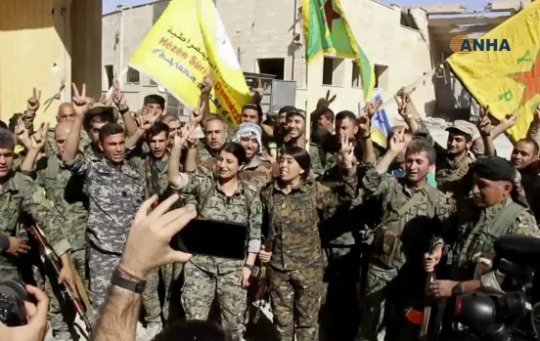
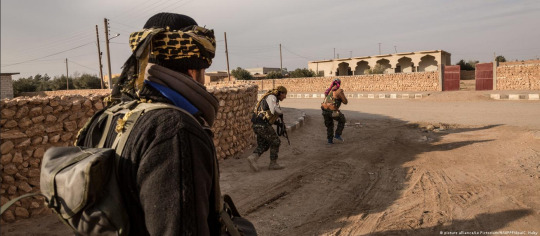
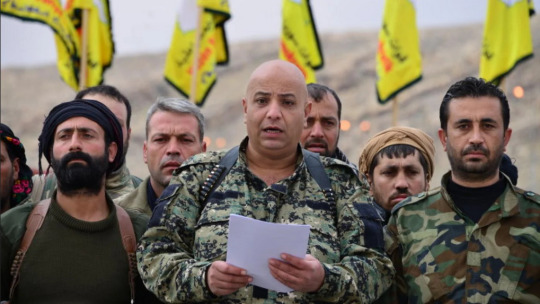
CorpMedia #Oligarchs #MegaBanks vs #Union #Occupy #NoDAPL #BLM #SDF #DACA #MeToo #Humanity #FeelTheBern
JinJiyanAzadi #BijiRojava US-backed forces seize parts of 'IS' capital Raqqa [UPDATES]
An alliance of Kurdish and Arab forces have made significant gains in their offensive to liberate the Syrian city. Human rights groups have warned of the challenges presented by 160,000 civilians still living in Raqqa…
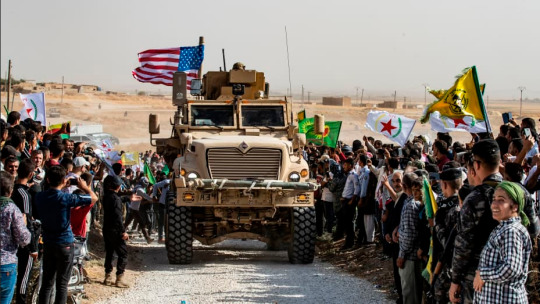
RELATED UPDATE: U.S. troops begin pulling out of Syria, leaving Kurds without support
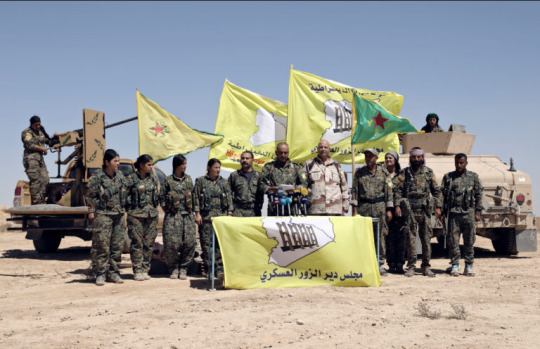
RELATED UPDATE: Arabs Across Syria Join the Kurdish-Led Syrian Democratic Forces
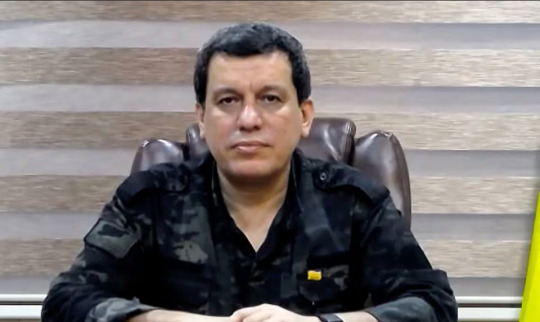
RELATED UPDATE: Exclusive: Kurdish-led Syria force vows to meet tribal demands after clash
https://www.reuters.com/world/middle-east/kurdish-led-syria-force-vows-meet-tribal-demands-after-clash-2023-09-07/
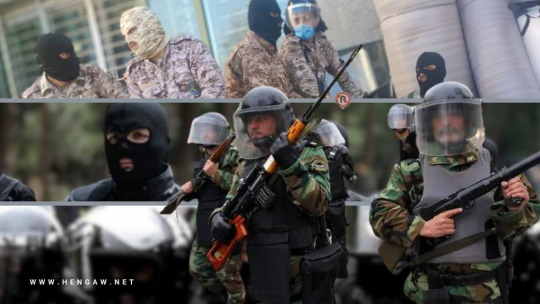
RELATED UPDATE: Report on Government Militarization in Kurdistan on the 'Jin, Jiyan, Azadi' Movement Anniversary
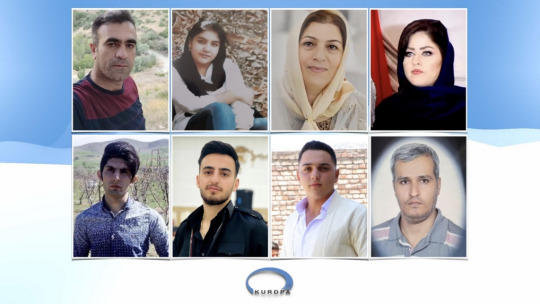
RELATED UPDATE: 27t, October 2023; The anniversary of the state murder of Eight Kurdish citizens the martyrs of the revolutionary uprising of Jin, Jiyan, Azadi in Sanandaj, Mahabad, Baneh and Tehran
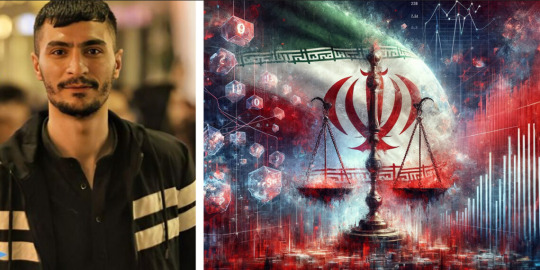
RELATED UPDATE: Another Kurdish ‘Jin Jiyan Azadi’ protester sentenced to death in Iran
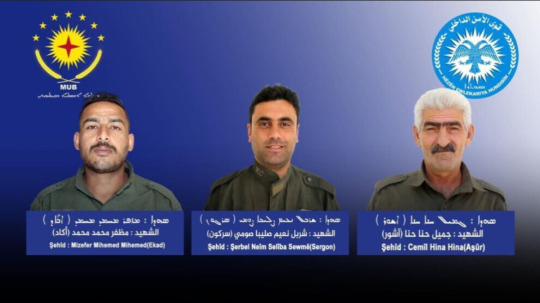
RELATED UPDATE: Turkish UCAV attacks claim the lives of three Syriac Military Council fighters in Derik
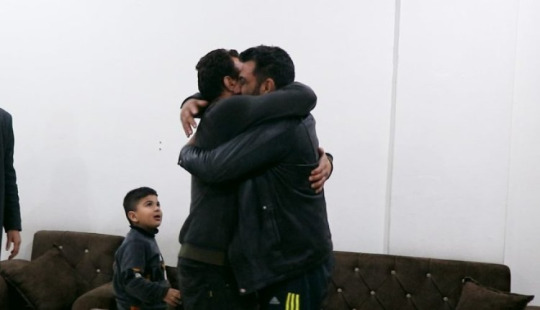
RELATED UPDATE: SDF liberates citizen, kidnapped in Raqqa city
FURTHER READING:
9 notes
·
View notes
Text
When civilians in northern Syria went to bed on Feb. 5, they did so while military conflict was in a state of relative calm. Little did they know that the most powerful earthquake to hit the region in almost 100 years would strike while they slept. After 12 years of brutal conflict in which the Syrian regime has used almost every weapon available against its own population, the level of destruction meted out by the earthquake upon Syria’s northwest has no close comparison. Areas now controlled by the regime have been hit hard by the earthquake and subsequent aftershocks as well. Just a day later, the death toll in Syria stands at over 2,000 and continues to rise. Hundreds, if not thousands, of people remain under rubble.
When it comes specifically to opposition-controlled northwestern Syria, a natural disaster like this could not have hit a more vulnerable population. Before the earthquake, the region represented one of the world’s most acute humanitarian crises. More than 4.5 million civilians live there, in a pocket of territory that represents no more than 4 percent of Syria—and nearly 3 million of them are displaced. At least 65 percent of basic infrastructure lay destroyed or heavily damaged, and 90 percent of the population is dependent on humanitarian aid, which comes through just one border crossing via Turkey, in Bab al-Hawa.
That cross-border aid effort is a mammoth operation, coordinated by the United Nations. There used to be three crossings utilized for cross-border aid in northern Syria, but Russia has forced two of them shut by using its veto power at the U.N. Security Council. In recent years, Russia has threatened to close Bab al-Hawa altogether, triggering warnings from U.N. aid bodies and nongovernmental organizations (NGOs) that such a move would spark a humanitarian catastrophe. Since the earthquake, the crossing has been forced shut. The only main road connecting it to Turkey’s interior was heavily damaged and U.N. aid infrastructure was crippled. Aid workers have been suffering the same fate as millions of others living in the disaster-hit region.
This is truly a nightmare scenario—a catastrophic natural disaster strikes one of the world’s most vulnerable populations, leaving thousands of leveled buildings and thousands of casualties amid bitter winter weather, and not a single route is open for aid.
Time is of the essence. Syrians in the northwest are dying by the minute, trapped under rubble. Thousands more are now homeless, with nowhere to go and no shelter to seek. The international community has pledged substantial assistance to Turkey, and rightly so—but as per usual, Syrians appear to be an afterthought. U.S. President Joe Biden has said U.S.-supported Syrian NGOs are responding on the ground, but that is simply not enough. The main NGO in question, the heroic White Helmets, has approximately 3,000 volunteer staff working amid a population of 4.5 million. They were established and are funded to respond to periodic airstrikes, not an apocalyptic earthquake.
Alternative border crossings exist at Bab al-Salameh and al-Yarubiyah through which aid could be provided. Our partners in the fight against the Islamic State, the Syrian Democratic Forces (SDF), have pledged to facilitate an aid response from the northeast, where the United States has 900 troops on the ground. We can do a great deal to help those most in need, but only if we truly want to. Waiting for the existing U.N. cross-border mechanism to recover and implement a response guarantees the loss of many more lives. It is a highly complex arrangement with extensive bureaucracy; it is risk-averse and susceptible to regime pressures. Ultimately, its own logistical struggles in the wake of the earthquake make it ill-suited to front a rapid response. A more unilateral effort, led by the United States and like-minded allies and facilitated by Turkey, is the only option—if we choose to take it.
Beyond the opposition northwest, regime-held areas of Aleppo, Hama, and the Mediterranean coast require an urgent aid response, too—and as the world’s leading donors to the Syrian aid response, U.S. and European funds will play a central role in the U.N.’s ability to assist from Damascus. The governments of Iraq, Algeria, Russia, and the United Arab Emirates (UAE) have also provided additional emergency assistance. An offer of aid from Israel was rebuffed on Feb. 6.
Prior to the earthquake, regime-controlled areas of Syria were suffering the consequences of a debilitating economic collapse—precipitated by the regime’s scorched earth-style pursuit of survival and accelerated by the spillover effects of Lebanon’s 2019 liquidity crisis, the COVID-19 pandemic, Russia’s war in Ukraine, and Iran’s own economic decline. Faced by rising internal pressures and civilian discontent, this earthquake has pushed the regime into a corner. It has issued a global call for help. Its ambassador at the United Nations, Bassam al-Sabbagh, told reporters on Feb. 6 that all assistance offered to Syria would be welcomed, but it could only pass through Damascus—suggesting a de facto veto on any cross-border relief into opposition areas.
The international community must remain committed to its long-standing policy of supporting cross-line and cross-border aid to assist all those in need. Temporarily expanding assistance channeled through Damascus should be considered, but only if clearance is provided to do the same into the northwest. The regime has a consistent, decadelong track record of manipulating, diverting, stealing, and spoiling humanitarian aid. The regime also earns enormous sums by forcing manipulated exchange rates on the U.N., thereby stealing half of every aid dollar sent to Syria. We cannot feed these problems, even within such emergency circumstances.
As responsible actors, we supply aid in line with the humanitarian imperative—that action should be taken to prevent or ameliorate human suffering arising out of disaster or conflict. Nothing should override this principle. If we fail to stick to the strict conditions already in place for aid provision through Damascus, we risk unintentionally paving a path toward the regime’s normalization. There is little trust in providing humanitarian exceptions to the regime, and rightfully so. In earlier years of the crisis, the international community agreed to provide the regime’s Russian allies with the coordinates of every hospital in northwestern Syria, in order to shield them from military actions. That information swiftly became targeting intelligence, with almost every hospital on the list destroyed in prevision strikes.
On balance, the regime is more likely to shoot itself in its own foot and rebuff possible offers of assistance from the West, but the United States and like-minded allies must not lose sight of the broader context within which this tragedy has occurred. If supplementary assistance is accepted, strict measures should be put in place to condition that aid on it reaching pre-agreed recipient communities via U.N.-vetted implementers. Even that is highly imperfect, with nearly a quarter of U.N. procurement funds being channeled through sanctioned entities, but the U.N. appears to have accepted this as a necessary evil.
Finally, if the Syrian regime turns its back on foreign offers or enforces impossible conditions upon them, we should be clear-eyed about the severe consequences that will result from this crisis. Prior to the earthquake, Syria was staring into an abyss of economic collapse, humanitarian suffering, and intractable political, ethnic, and sectarian instability. The root cause of all of this—the regime—shows no sign of openness to compromise. In 2022, illegal migration of Syrians into Europe rocketed by 100 percent. With the effects of this earthquake as cataclysmic as they are, those numbers will markedly rise once spring arrives. For too many years, the international community has chosen to take half-measures when it comes to Syria policy, to ignore its root causes, or to ignore it altogether. That must now end.
3 notes
·
View notes
Text
News Roundup 8/31/2023 | The Libertarian Institute
Here is your daily roundup of today's news:
News Roundup 8/31/2023
by Kyle Anzalone
Russia
Russian Foreign Ministry spokeswoman Maria Zakharova said Wednesday that Ukrainian drone attacks on Russia would not be possible without help from the West, Russia’s TASS news agency reported. AWC
Fresh from a trip to Kyiv, Sen. Richard Blumenthal (D-CT) is arguing that the US is getting its “money’s worth” in Ukraine because Russia is taking losses and no Americans are dying, showing a lack of concern for Ukrainian lives. AWC
Ukrainian officials have sharply criticized Pope Francis for an address he gave to young Russian Catholics, accusing him of spreading “imperialist propaganda” for saying Russians should be proud of their heritage. AWC
China
The Biden administration has approved the first-ever military aid package for Taiwan using Foreign Military Financing (FMF), a State Department program that gives foreign governments money to buy US arms. AWC
An influential group of British members of parliament referred to Taiwan as an “independent country” in a report issued Wednesday as British Foreign Secretary James Cleverly is visiting China. AWC
Korea
Hours after the US flew bombers in separate joint air drills with Tokyo and Seoul, North Korea test fired two short-range ballistic missiles. This comes as Kim Jong Un, the supreme leader of the Democratic People’s Republic of Korea (DPRK), has warned that increased military provocations by the US, Japan, and South Korea could cause a nuclear war. The Institute
Syria
Over thirty people were killed in a battle between the Syrian Democratic Forces (SDF) and the Deir el-Zour Military Council (DEMC). Both the SDF and DEMC are supported by the US. The Institute
Read More
4 notes
·
View notes